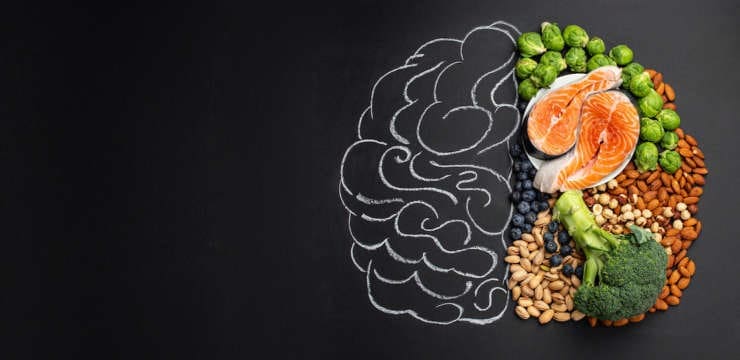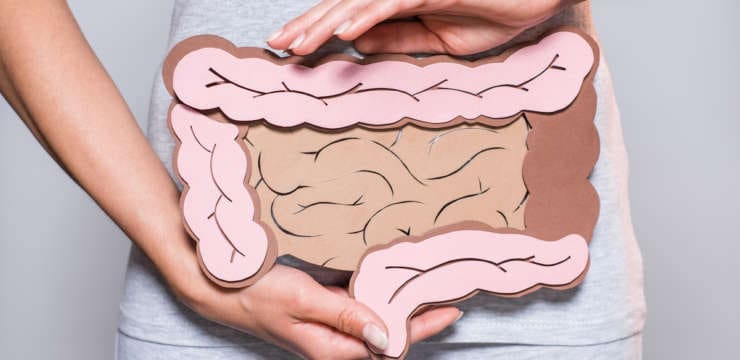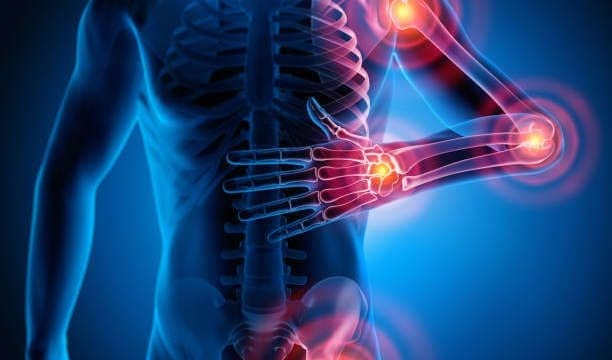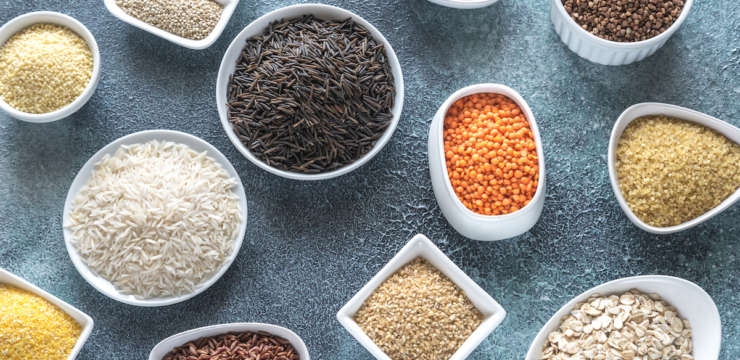Introduction The previous article talked about how photobiomodulation or low laser therapy can help improve the gut microbiome. Today’s article gives an in-depth look…

Introduction The body has a variety of functions that work simultaneously to make sure that it’s working correctly. From the musculoskeletal system all the way…

Gastrointestinal stress and digestion issues/problems have become a familiar experience for many individuals. Gastrointestinal issues include: Dyspepsia or indigestion Bloating Gas General abdominal pain Irritable…

Introduction On today’s podcast Dr. Jimenez DC, health coaches Adriana Caceres and Faith Arciniaga, and nutritionist Ana Paola RodrÃguez Arciniega will discuss the steps to…

Small Intestinal Bacterial Overgrowth (SIBO) has a prevalence of 56% among patients with irritable bowel syndrome. Over the years, this condition was only treated with…

The connection between our modifiable life factors and the risk of developing diseases has been extensively reported. Indeed, our eating patterns, daily activities, exercise, relaxation…

The classification criteria for fibromyalgia have changed over time, affecting its definition from a “peripheral pain-defined disease” to a “systemic symptom-based disease.” Indeed, the ACR-2010…

The symptoms associated with virus infections vary; some patients report physical pain, others have gastrointestinal issues, others say their mucous production is elevated, and others…

Thyroid function is crucial to maintain health. The balance and secretion of hormones like T3 and T4 orchestrate the metabolic process. However, a dysfunctional thyroid…

There are different possible causes of abdominal pain and digestive problems. Sometimes a bulging disc is the cause. A bulging disc that is causing abdominal…

Degenerative diseases, specifically those that affect joints and muscle, produce detrimental effects on movement, agility, strength, and quality of life. Numerous nutritional and strength exercise…

Urolithin A is the most abundant type of urolithin produced by the human microbiota. This nutritional compound is derived from ellagitannins and ellagic acid commonly…

The metabolic effect of gut-derived metabolites coincides with the prevention of conditions like obesity and diabetes in mouse models. However, to produce the beneficial gut-derived…

t is not news that mitochondria are not the ONLY powerhouses of our body. Indeed, our gut microbiome can metabolize foods that were thought to…

Fifty-four million adults currently suffer from Arthritis. In addition to that, about 9% of adults have some type of limitation attributed to Arthritis. The CDC predicts the number of those diagnosed with Arthritis will only continue to rise in the years coming. With autoimmune disease continually growing, it begs the question, “What are we doing to reduce these chances in our patients?”.
Arthritis
Arthritis is inflammation of the joints. With “Arthro,” meaning joint, and “itis” referring to inflammation, it is clear that joint inflammation is the symptom being referred to. Many conventional approaches to arthritis treatment are aimed at reducing the inflammation of the joints. These medications also come with a heavy dose of side effects, including kidney failure, gastritis, and bleeding in the stomach. Looking from a functional perspective, aiming to heal at the orthomolecular level, we pinpoint what is causing the inflammation in the first place. By resolving the overall inflammation in the body, evaluating the musculoskeletal system, and creating a holistic plan, we are able to naturally reduce what is causing the inflammation. With this plan of action, joint inflammation ultimately subsites as well.
Underlying Conditions
As with other autoimmune conditions, we see underlying factors associated with Arthritis. One of the main contributing factors is infection and imbalance of the gut microbiota. For over 100 years, researchers have been searching for the exact link between the arthritis-infection connection. It has been documented countless times in animals and humans that those with Arthritis have another type of infection. We know that in patients with RA (Rheumatoid Arthritis), there are polymorphonuclear (PMN) leukocytes. This association of joint neutrophilia with RA has implied infectious etiology.
DNA Sequencing
DNA sequencing was used to identify the bacteria on the mouth and in the intestines of participants with RA. This research has found that those who have an early onset of RA have had 4x more porphyromans gingivalis bacteria vs. the healthy controlled adults. Intestinal bacteria was also associated with inflammation and is more prevalent in patients who have RA. A specific test we use to test DNA is from DNA Life called DNA Health. We also use a stool test from Genova to detect inflammation and strains of bacteria in the gut. The balance between the gut and inflammation is substantial. There are countless studies documenting “leaky gut”. When the gut becomes so inflamed, the barrier becomes permeable, and small undigested proteins leak through the barrier back into the bloodstream. Our body sees these proteins as foreign invaders and sends white blood cells to attack. This process is what starts the inflammation. With continuous leakage and cells attacking our own body, the autoimmune diseases set in. With the help of the Genova test-we are able to create a program that helps reduce, repair, and replenish the gut. A sample resort of both tests are shown below:
[wp-embedder-pack width=”100%” height=”400px” download=”all” download-text=”” url=”http://www.dnalife.healthcare/wp-content/uploads/2020/05/DNA-Health-Sample-Report-2020.pdf” /]
[wp-embedder-pack width=”100%” height=”400px” download=”all” download-text=”” url=”https://www.gdx.net/core/sample-reports/gi-effects-2200-sample-report.pdf” /]
Hormones
Hormones are to ensure our bodies are properly functioning. It is common for those who have Arthritis to have a hormone imbalance as well. These hormones include DHEA, Pregnenolone, Natural progesterone, natural estrogens, human growth hormone, cortisol, melatonin, and more. Hormones are delicate and can be thrown off by a multitude of environmental factors. Even something as simple as perfume, scented body soap, and lotions can throw imbalance hormones. One hormone test we specifically use is the DUTCH Plus test from DUTCH. This is a combination of 6 urine and six saliva samples throughout a 24 hour period. This test shows us the exact numbers and fluctuations one has in hormones. A sample of this report can be seen below:
[wp-embedder-pack width=”100%” height=”400px” download=”all” download-text=”” url=”https://dutchtest.com/wp-content/uploads/2020/01/DUTCH-Plus-Female-Sample-Report-Ref02252020.pdf” /]
A Functional Approach
When dealing with a disease such as Arthritis, there are six areas to be considered from a functional standpoint. The first being dehydration. Unfortunately, dehydration is widespread and causes the body to not function at its total capacity. We are able to track hydration levels at the intracellular and extracellular level of our patients with the use of our InBody 770 machine. The second aspect is food and environmental allergies. These allergies around us are impacting our genes and how we break down food particles. If we are sensitive to food, our gut is not properly digesting it. This leaves us with leaky gut syndrome and proteins leaking back into our bloodstream, resulting in inflammation. Third, hormone imbalances. As mentioned above, we can not improve our joints if we do not first assess the hormones. The fourth factor is infections. If we have previous infections, they may have altered our DNA or still be lingering around, leading to excess inflammatory factors. Fifth, nutritional imbalances. Similar to hormones, we need our nutrition to be fully functioning to properly allow energy creation and proper breakdown. If we lack micronutrients, our production and balance of energy will be offset. Finally, the last point to be evaluated is toxicities. Toxins surround us everywhere we go. They are in the products we use, the air we breathe, the food we eat, etc.
Phase Angle
The phase angle is a snapshot of cellular health. We want our cells to be strong, healthy, and able to fight off infection. This comes from a solid cellular membrane. When an individual’s phase angle is around 7, we know the cells are healthy. However, in many cases, phase angles fall closer to the 4-5 range. A phase angle in this low range indicates that the cellular membranes are permeable and more susceptible to infection and early apoptosis (cell death). To improve overall phase angle, we must decrease visceral fat (the fat surrounding the organs) and increase our skeletal muscle mass to outweigh our weight and body fat mass. As previously mentioned, we use the InBody 770 machine to detect phase angle, visceral fat, water levels, inflammation, skeletal muscle mass, body fat mass, and BMI.
[embed]https://www.youtube.com/watch?v=047lML9ndPo[/embed]
Tie It Together
By approaching Arthritis and inflammation from these areas and considering these six factors, we are able to assess what the real source of inflammation is. This provides us with a great understanding of how to go about reducing inflammation and repairing the body in a functional way. The musculoskeletal system is intertwined with all areas of the body. It comes down to the cellular level.
We have discovered that everything is connected to the gut and phase angle. We did not associate joint pain with gut inflammation before, but now we see that it is all connected. We can start by feeding our bodies anti-inflammatory foods such as smoothies to reduce inflammation. -Kenna Vaughn, Senior Health Coach
References:
Brownstein, David. “Overcoming Arthritis.†Functional Medicine University . 2020.
Additional Online Links & Resources (Available 24/7)


Online Appointments or Consultations: bit.ly/Book-Online-Appointment


Online Physical Injury / Accident Intake Form: bit.ly/Fill-Out-Your-Online-History


Online Functional Medicine Assessment: bit.ly/functionmed

Obesity is an impactful disease favored by multiple factors with no signs of abating. Despite massive health campaigns and multiple dietary, surgical and pharmacological options…

Food sensitivities reflect gastrointestinal issues such as diarrhea, constipation, bloating, and overall discomfort. Additionally, multiple other symptoms like headache, wheezing, brain fog, depression, and even…
